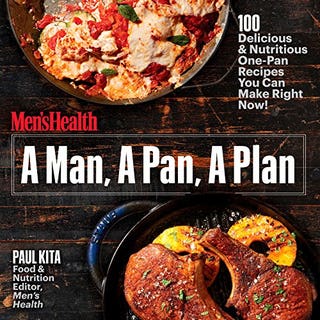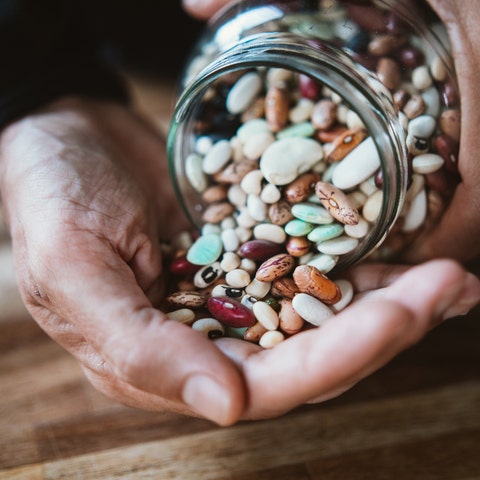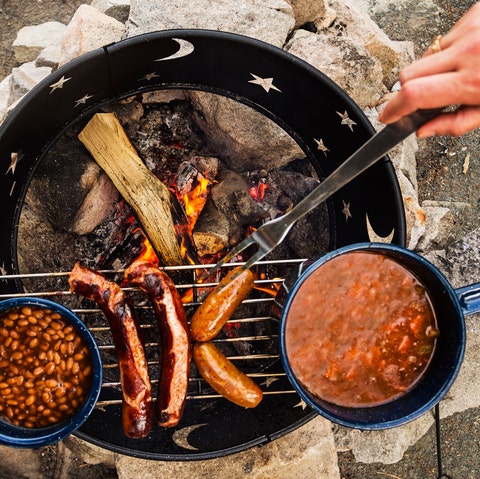
“Beans, beans, the magical fruit … “
Yeah, yeah, yeah—we’ve all heard this little ditty (which has certainly stood the test of time since my kids now sing it themselves).
As a registered dietitian I know that beans deserve more respect—and should be relegated as the butt of jokes.
Yes, beans give you gas—but they do so much more for you health-wise.
And, while we’re rectifying the reputation of beans, let’s get something else straight: The overall category of beans is actually called “pulses.” Though the words pulses and beans are used interchangeably, they do have distinct meaning.

A pulse is the edible seed from a legume plant, including beans, lentils, and peas. They’re a good source of plant-based protein, fiber, and essential nutrients.
People who regularly pulses in their diet can lower blood cholesterol, reduce blood pressure, and help promote a healthy body weight.
And they’re cheap!
Truth be told pulses just very well might be the most important food for your health, longevity, and wallet. Yet in some circles, they’ve been poo pooed as having something called lectins, which are “anti-nutrients” said to block the absorption of certain minerals and cause GI discomfort.
The truth is, these naysayers are using nothing more than fear and scare tactics to promote their way of eating. Are there some people who have a tough time digesting beans? Sure. Are there many, many more whose health would benefit greatly from adding pulses to your diet? One hundred percent.
Why are they so “magical?” Where do I begin?
What Are the Nutritional Benefits of Beans?
To start, the USDA counts pulses as a subgroup of the vegetable group and as part of the protein foods group, as well, so they deliver two times the nutritional punch.
“Beans have a high nutrition content, as they provide antioxidants, fiber, protein, B vitamins, iron, magnesium, potassium, copper and zinc,” says Patricia Bannan, M.S., R.D.N.
And then there’s the fiber.

One study published in The Lancet found that for every 8 grams of fiber eaten daily, total deaths and incidence of coronary heart disease, type 2 diabetes, and colorectal cancer decreased by five to 27 percent.
To put that into real food perspective, ½ cup of most pulses offers at least 8 grams of fiber. In other words, a simple ½ scoop of black beans, lentils or chickpeas to your salad or tacos, for example, might just save your life.
Research has shown people in Blue Zones—areas of the world where people live long, healthy lives—eat pulses daily.
It’s surely not the only secret, but one that can’t be discounted.
What Are the Planetary Benefits of Beans?
The truth is, beans are the one food you should be eating more of for a variety of other reasons as well, in addition to their fiber and nutrient power, with sustainability for your body and the planet atop that list.

“Pulses are considered sustainable, eco-friendly crops because they have a low carbon footprint and support soil health, and use less water than animal protein,” Bannan says.
In other words, by adding pulses to your diet, or swapping pulses with a portion of less-sustainable ingredients, you are supporting a healthy and diverse farm and food system.
How Do You Eat More Beans?
You don’t have to give up animal protein completely, unless you want to.

Instead, you could take a beautiful filet of salmon and complement it with a side of lentils or other beans. Or maybe your steak salad could also include a ½ cup of beans or a scoop of hummus, which is made from chickpeas, in addition to a variety of colorful veggies.
Consider take a seafood-and-vegetable pasta dish and add cannellini beans (a favorite in our house).
While I’m certainly a fan of a simple ½ cup of beans added to a salad, tacos, or even pasta, cookbook author and registered dietitian, Michelle Dudash, suggested this simple idea to for an easy to make, delish Slow Cooker White Bean Stew with Tomatoes and Swiss Chard from her upcoming book out in June, The Low-Carb Mediterranean Cookbook.
In a slow cooker, combine 1 can drained cannellini beans, 1 can diced tomatoes, 1 bunch chopped Swiss card, 2 cups vegetable broth, and 1/2 diced onion. Sprinkle in your favorite seasonings, like Italian seasoning, garlic, liquid amino acids, nutritional yeast, salt, pepper, and a teaspoon of apple cider vinegar. Cover and cook on low for 2 to 3 hours.
A generous and hearty 1 1/2 cup serving of this vegan stew is only 182 calories, yet provides 9 g fiber, 11 g protein, and just a gram of fat. This nutritional profile leaves you with some room to drizzle on some rich-tasting, extra-virgin olive oil for added satisfaction, or pair with a glass of wine or kombucha, or square of dark chocolate.
Or more beans?
Source: Read Full Article